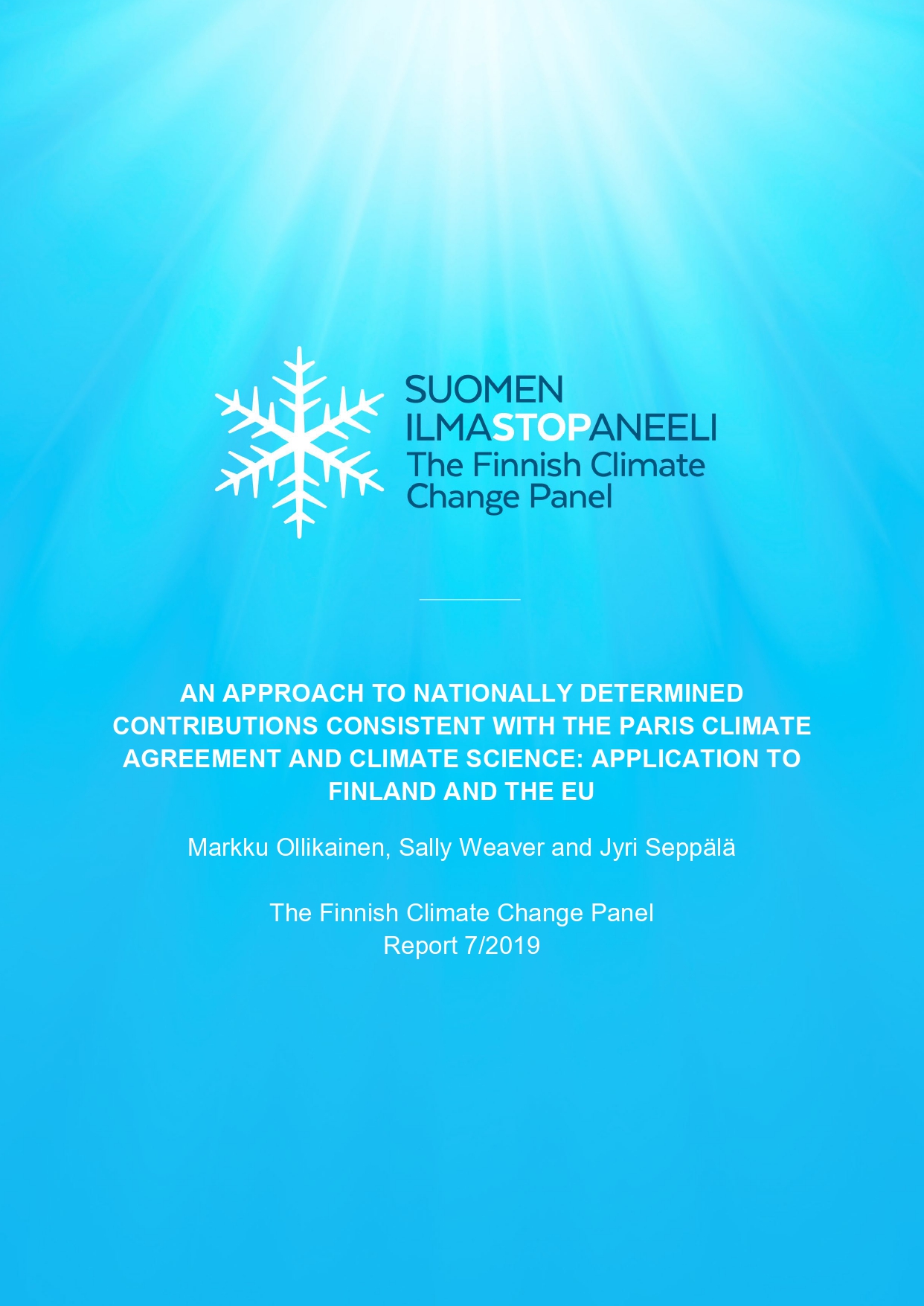This report provides a continuation of the analysis that the Finnish Climate Change Panel conducted on the long-term emissions reduction target for Finland. This analysis was originally developed as background material for answering questions Minister Tiilikainen posed to the Panel concerning the long-term emissions reduction target for Finland. The specific questions given to the Panel for consideration were
- Considering current long-term climate policy commitments and the scientific views on reaching the Paris Agreement goals, what could be a sufficiently ambitious reduction target for Finland for 2050?
- How does the Panel view the preciseness of setting a target and possible milestones towards reaching it? Taking into account uncertainties and other factors, is there reason to consider a target range instead of a specific target? Are there grounds for defining an emissions reduction pathway towards 2050 targets?
- Does the Panel see carbon neutrality as part of the emissions reduction target or as a parallel goal? How could these targets work together coherently?
- What kind of role should flexibilities have, in the Panel’s opinion, when defining reduction targets and carbon neutrality? How does the Panel see flexibilities relative to cost-efficiency, risk management and increasing ambition?
- Which other points should be considered in the Panel’s opinion, when setting the long-term emissions reduction target?
Given that the notion of responsible or fair contribution to the global efforts to mitigate climate change is normative, the Finnish Climate Change Panel developed an approach that drew on the recent climate research employing equity criteria on one hand and global carbon budgets on the other. The IPCC’s report “Global Warming of 1.5 °C” provides new estimates of global carbon budgets. This report updates the previous analysis to reflect these estimates and explores their implications to the fair and responsible contribution of Finland, the EU, Germany and Sweden to global efforts to restrict the increase in the global mean temperature to 1.5 degrees.




